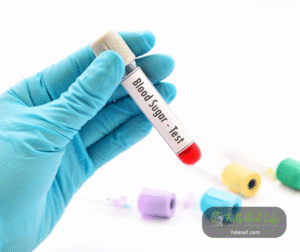Do you often feel tired, lethargic, or unwell without any apparent reason? Are you experiencing unexplained symptoms like headaches, skin rashes, or allergies? If so, you may be dealing with environmental toxins, which can contribute to toxic overload in your body.
Environmental toxins are substances that can harm your health and well-being, and they are present in the air we breathe, the food we eat, and the products we use every day. Exposure to these toxins can lead to various health issues, including immune system dysfunction, hormonal imbalances, and even cancer. Understanding the root cause of environmental toxicity is crucial to maintaining your overall health and well-being.
So, what are the lifestyle and environmental factors that contribute to toxic overload? Here are a few examples:
- Air pollution: Air pollution is a major environmental toxin that can affect your respiratory system, immune system, and cardiovascular health. Sources of air pollution include industrial emissions, traffic fumes, and smoke from cigarettes or wood-burning stoves.
- Pesticides and herbicides: Pesticides and herbicides are chemicals that are commonly used in agriculture to protect crops from pests and weeds. Exposure to these chemicals can cause damage to your nervous system, endocrine system, and immune system.
- Heavy metals: Heavy metals like lead, mercury, and cadmium are present in many products we use every day, including cosmetics, batteries, and electronics. Exposure to these metals can lead to cognitive and developmental issues, as well as kidney and liver damage.
Reducing exposure to environmental toxins is crucial to reducing the risk of toxic overload. Here are a few tips to help you reduce your exposure:
- Choose organic: Choosing organic food and products can help reduce your exposure to pesticides and herbicides.
- Avoid plastics: Plastics contain chemicals like bisphenol-A (BPA) and phthalates, which can disrupt your hormonal balance. Look for products made from glass or stainless steel instead.
- Use natural cleaning products: Many conventional cleaning products contain toxic chemicals that can harm your health. Choose natural cleaning products or make your own using simple ingredients like vinegar, baking soda, and lemon.
- Purify the air: Using an air purifier can help reduce your exposure to air pollution.
- Filter your water: Municipal tap water can contain contaminants like lead, arsenic, and fluoride. Using a water filter can help remove these toxins.
- Eat a nutrient-dense diet: Eating a diet rich in nutrients like vitamins and antioxidants can help support your body’s natural detoxification processes.
- Opt for natural personal care products: Many personal care products contain chemicals like parabens and synthetic fragrances, which can be harmful to your health. Look for products made with natural ingredients.
- Limit exposure to electromagnetic fields (EMFs): EMFs are emitted by electronic devices like cell phones, laptops, and Wi-Fi routers. Limiting your exposure to EMFs can help reduce your risk of health issues like headaches and sleep disturbances.
Remember, identifying the root cause of environmental toxicity is crucial to maintaining your health and well-being. If you need assistance in identifying these causes that contribute to toxic overload and creating an individualized plan to help you get back on track – I’m here to help.
My goal is to help you achieve optimal health and well-being in a way that feels comfortable and sustainable for you.
If you’re concerned about your exposure to environmental toxins and want to learn more about how I can support you, I offer a free consultation to help you get started on your journey to better health.








